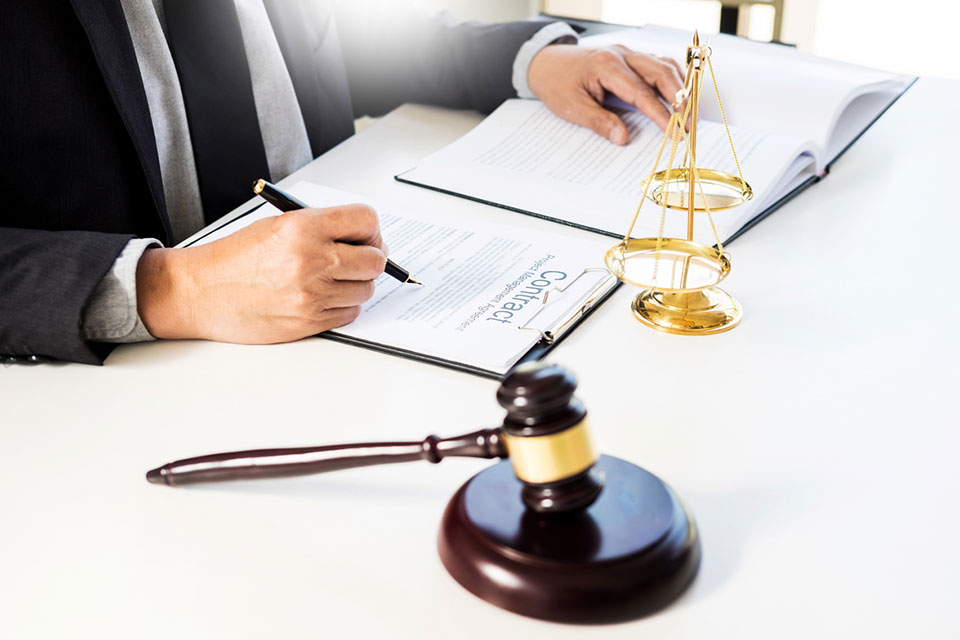How Legal Factors Affect Businesses

Going ahead with a business venture is a great career choice. But getting a business up and running and maintaining it smoothly needs more than just efficiency and management skills. There are multiple external factors than can either help the business grow or ruin it eventually. One such prominent factor is the laws that affect businesses.
There are several ways that legal factors affect businesses. From business contracts, getting licenses, hiring employees, to managing taxation, there are plenty of factors to consider that can potentially harm a business if not dealt initially. This article will throw light on some essential legal issues affecting businesses.
Legal Factors in A Business Environment – How to Define
Legal factors in a business environment are defined as law-related issues and proceedings that the owner of a business must consider in order to run the business seamlessly. Laws that affect businesses include federal regulations, state laws, and customs imposed norms. These are authority implied structures that business owners need to comply with. Otherwise, they might face legal harassment in future.
In the business environment, these are the grounds where legal understanding is necessary for a business owner.
- Getting a business license.
- Financing the business.
- Taxation procedures.
- Hiring employees.
- Labor protection.
- Customer security.
- Export and imports.
For detailed analysis on laws affecting business, business owners and new entrepreneurs can refer to the US Government official website or the website of the US state commercial law.
How Do Legal Factors Affect Businesses
Legal factors affect businesses in several ways. There are corporate and business laws that determine whether a product is legal to sell in the market or not. Moreover, a business also has to abide by the national policies and regulations for product marketing, selling, inventory management, etc. Here are the laws that affect businesses.
Securities Law
Financing a business is a major part that an entrepreneur needs to consider. Securities law caters to the investment part of the business. Such regulations determine lawful dealings with the investors if the owner goes for an investment loan. A promissory statement to the investor involves federal norms and security laws.
In a limited liability company, securities law is a predominant factor as it involves third party investment procedures. To ensure the authentic transaction and smooth debt repay, securities law is necessary.
Labor Protection Law
There are federal regulations to protect the labor interests in business industries. This is one prominent legal factor affecting business. These employment protection and labor laws determine the following parts.
- Yearly wages for an employee.
- Overtime scheduling and payment.
- Youth employment schemes.
- Protection against unlawful discriminations like caste, religion, color, or gender.
- Workplace safety for employees.
If a business owner fails to comply with employment law, he/she might have to face legal challenges. For better understanding about the labor laws in the US, business owners can refer to the United States labor laws.
Consumer Protection Law
Consumer protection law connects the legal thread between the business and the consumer. Through this regulation, business owners are liable to face legal issues if they get into fraudulent dealings with the customer. The Legal Information institute has a thorough guide on consumer protection acts in commercial fields. Following are the 4 branches of this law.
- Standard Weight and Measurement Act ensures that the products subjected to trade are weighed on standard measurement scales.
- Consumer Credit Protection Act ensures that consumers have clear information about the product pricing and interest rates for loans.
- Sale of Goods Act ensures the standard of the selling products. Through this act, customers can take legal actions in case they get damaged or flawed goods.
- Trade Descriptions Act ensures that traders cannot fool the consumers with misleading and false information about their products.
Intellectual Property Laws
Intellectual property laws protect the patents and copyrights of a particular business. This is one of the most prominent legal issues affecting businesses. Violation of these laws can lead to serious legal hazards. Intellectual properties for a business include logos, domain names, business names, symbols, or specific illustrations. If a company uses any of these intellectual properties of another company without prior legal procedure, then the later one can strike copyright violation charges on the former company.
For further knowledge on intellectual property laws, owners should consider visiting the US Patent and Trademark Office.
Organizational Law
This is perhaps the most crucial legal factor affecting business. Organizational law implements when a business is at the planning stage. This law determines the operational structures of a business that is yet to launch. When a business structures, it must get a legal entity that needs to comply with state laws. These legal entities can be of the following types.
- Limited partnership business.
- Limited liability partnership business.
- Partnership.
- Limited liability company.
- Corporation.
Tax Laws
Any business entity is liable to pay taxes based on its location and revenue earnings. Violating tax regulations can end the future of the business. Hence, it is another crucial legal factor affecting business. Tax norms differ from state to state. Some states have more flexible taxation rules than others. Tax filing involves the owner to obtain an Employer Identification Number. Tax responsibilities for a business owner include the following taxes.
- Employment tax
- Sales tax
- Federal tax
- Income tax
Health and Safety Regulations
When a company hires employees, it must ensure the safety and health facilities for them. Health and safety regulations include legal attributes that help employees to go ahead with legal proceedings if the company fails to provide required safety and health facilities. These norms include the following.
- Employees should get adequate protection while working with dangerous machinery and industrial equipment.
- The workers should receive proper clothing and other equipment to meet the safety standards.
- At the workplace, the rooms must have a reasonable air temperature for the employees.
- The organization should maintain hygiene standards in the work site. They should also provide washing facilities to the employees.
- While working, the employees should get enough free time.
These are some of the prominent legal factors that can affect businesses to a great extent. Business owners must consider these legal checkpoints while proceeding with their business ventures.
Bring the best of the CEOWORLD magazine's global journalism to audiences in the United States and around the world. - Add CEOWORLD magazine to your Google News feed.
Follow CEOWORLD magazine headlines on: Google News, LinkedIn, Twitter, and Facebook.
Copyright 2025 The CEOWORLD magazine. All rights reserved. This material (and any extract from it) must not be copied, redistributed or placed on any website, without CEOWORLD magazine' prior written consent. For media queries, please contact: info@ceoworld.biz











